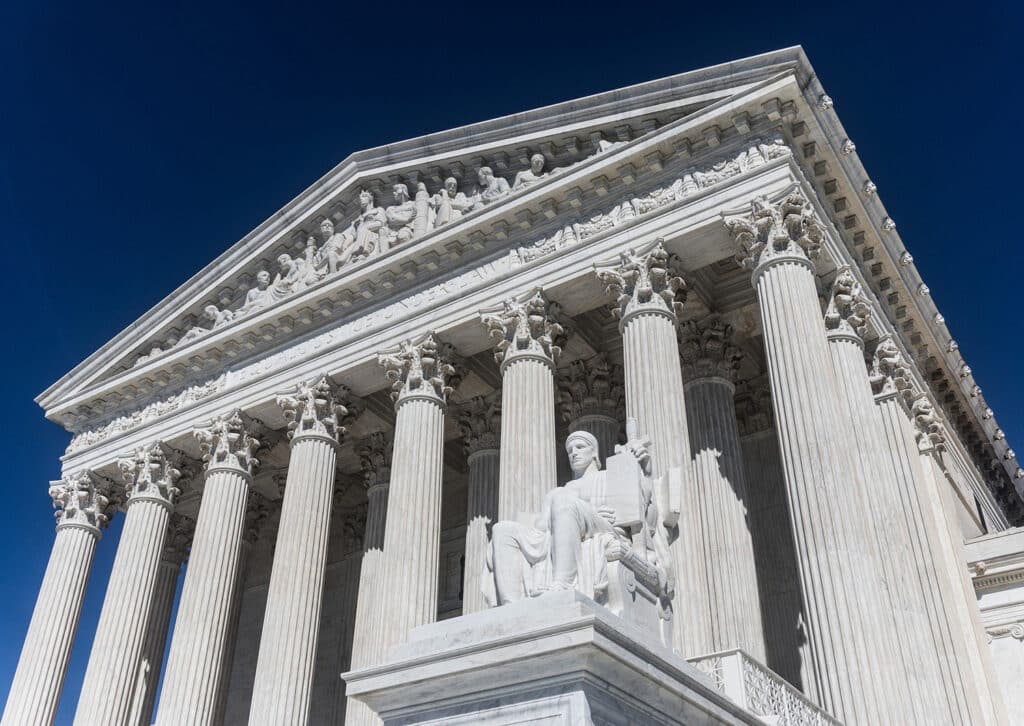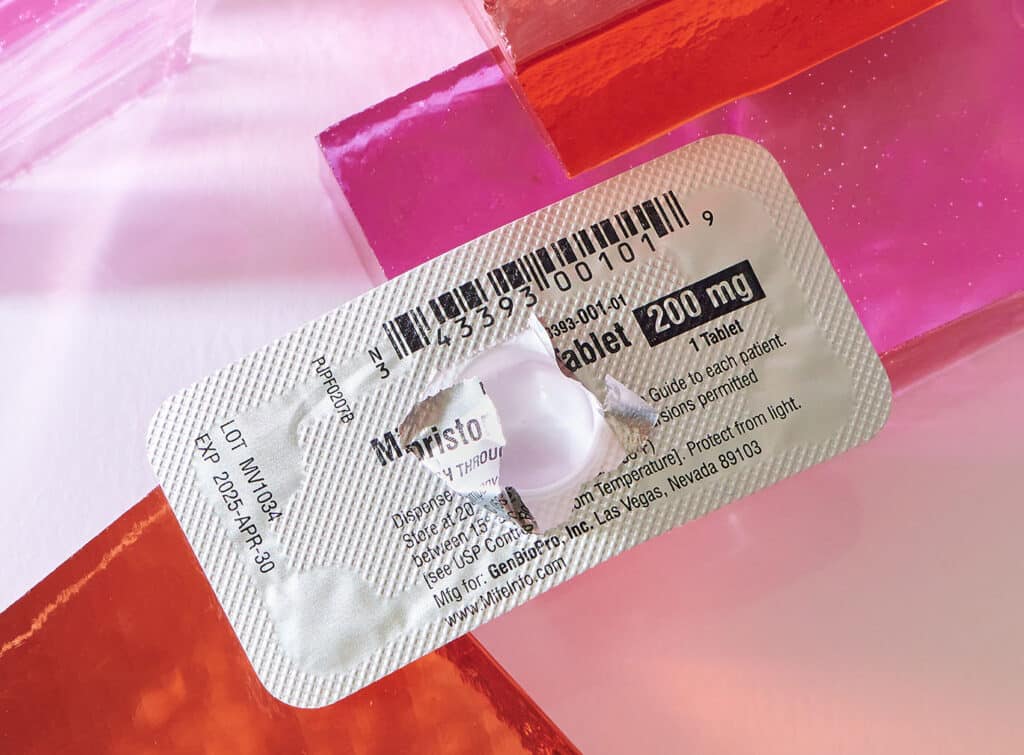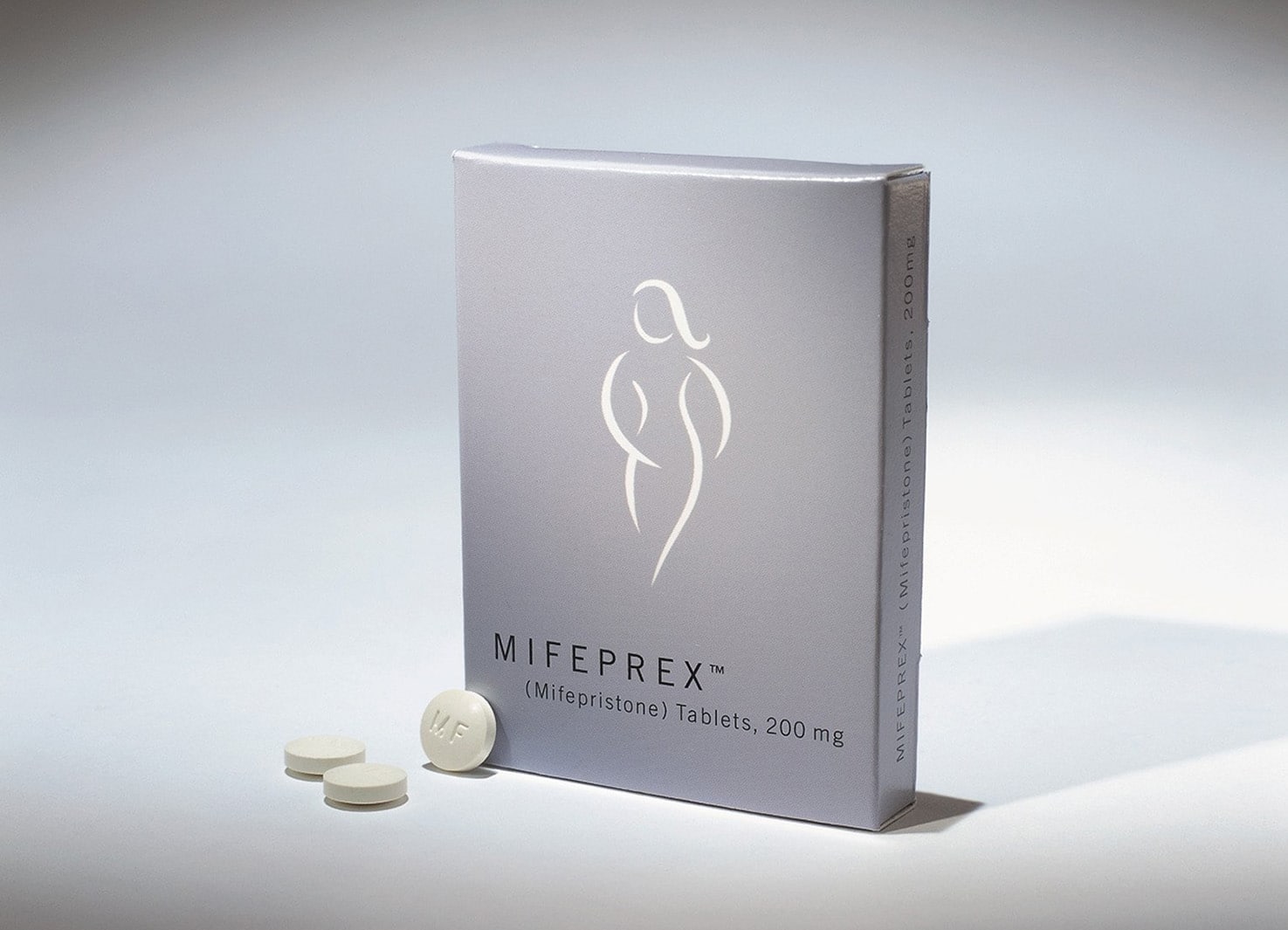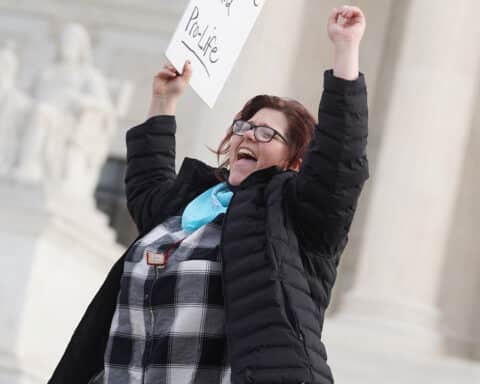The U.S. Catholic bishops agree that the U.S. Food and Drug Administration’s (FDA) current protocol with the abortion pill not only makes informed consent about the risks impossible but also endangers women, according to a newly-filed Supreme Court brief.
Together with nearly a dozen other groups, the United States Conference of Catholic Bishops (USCCB) submitted a brief in the first major Supreme Court case involving abortion since the overturning of Roe v. Wade, a case that previously legalized abortion nationwide, in June 2022. The court will hear oral arguments in the consolidated cases — Food and Drug Administration v. Alliance for Hippocratic Medicine and Danco Laboratories v. Alliance for Hippocratic Medicine — on March 26.
The outcome will determine the future availability of a drug used in abortion, called mifepristone. The FDA first approved mifepristone, which is paired with another drug called misoprostol, for earlier abortions in 2000. Currently permitted for use through 10 weeks gestation, this type of abortion is also known as the abortion pill, chemical abortion, medication abortion or telemedicine abortion.
Today, it accounts for more than half of all U.S. abortions, according to the Guttmacher Institute, a reproductive research organization.
Regulations offer better care for women
The brief asks that the Supreme Court affirm the United States Court of Appeals for the Fifth Circuit, which ruled last year to uphold the FDA’s approval of the abortion drug while reinstating the federal agency’s currently-lifted regulations that would prohibit mailing the drug to women and prescribing it by telemedicine, among other things.
“The current FDA protocol for mifepristone use has profoundly negative legal and ethical consequences, including because it lacks safeguards necessary to ensure informed consent,” the brief reads. “Amici [the groups who joined the brief] are well-suited to discuss how the FDA’s failure harms women who may take mifepristone to cause an abortion.”
A slew of Catholic groups joined the brief, led by national pro-life group Susan B. Anthony Pro-Life America and the USCCB: Catholic Healthcare Leadership Alliance, National Catholic Bioethics Center, Catholic Bar Association, Catholic Benefits Association, Christ Medicus Foundation, Texas Catholic Conference of Bishops, National Catholic Partnership on Disability, and National Association of Catholic Nurses, USA. Coalition for Jewish Values also joined.
The Catholic Church, which considers abortion a grave evil, teaches that human life must be respected and protected from the moment of conception.
As executive director of the Texas Catholic Conference of Bishops (TCCB), Jennifer Carr Allmon shared why the Texas bishops joined the brief.
“I want to be clear from the outset that no abortion is safe; every abortion is the intentional killing of an innocent human person,” she told Our Sunday Visitor. “Until the day comes, however, where all people recognize the innate dignity of the human person from conception, we are called on to reduce the harm to women seeking abortion as much as possible, which is why the bishops joined the amicus brief.”

A look at the Supreme Court brief
In the brief, the various groups express concern that the FDA’s current approach prevents women’s informed consent before swallowing the abortion pill.
“The patient’s decision must be based on adequate disclosure of the diagnosis, the proposed treatment, its benefits, risks, and alternatives, and the patient must have capacity and freedom from coercion,” the brief reads. “These fundamental principles, which protect both patients and medical professionals, cannot be met when healthcare providers prescribe mifepristone under FDA’s current protocol.”
The federal agency, the brief argues, based its approval of the abortion pill on studies that included safeguards not currently in place.
“Because of the risks posed by taking mifepristone to cause an abortion, its availability is limited by an FDA-imposed Risk Evaluation and Mitigation Strategy (REMS) with post-marketing ‘elements to assure safe use’ (ETASU),” it continues. “But to the detriment of women, FDA’s approval was based on studies containing safeguards not used when actually prescribing the drugs post-approval.”
It concludes: “This prevents prescribers from being able to accurately convey the true risks of the drug to patients.”
The groups challenged the FDA’s decision to lift safeguards on the abortion pill in recent years, from no longer requiring the reporting of non-fatal adverse events of the drug to no longer requiring in-person appointments to prescribe it.
In-person visits are critical
The brief called in-person visits for women seeking the abortion pill “critical.”
“Without it, physicians are unable to adequately diagnose ectopic pregnancy, verify Rh status, or detect other contraindications,” it says of situations where taking the abortion pill can threaten a woman’s life or future fertility.
“Physicians thus cannot adequately inform a woman of her personal risks related to mifepristone,” it adds. “And without in-person visits, prescribers also cannot adequately determine whether patients are giving consent without coercion.”
The brief calls on the FDA to do more for women.
“Women can only benefit from more information and more protection,” the brief reads, “especially when considering whether to take a drug that FDA acknowledges is dangerous and that has permanent consequences.”

Texas Catholic Conference of Bishops weigh in
At the TCCB, Carr Allmon addressed the removal of regulations around the abortion drug.
“The FDA’s previous Risk Evaluation and Mitigation Strategy, otherwise known as REMS, which were put in place by the Clinton administration, recognized the potential harmful effects of chemical abortion on women’s health,” she told Our Sunday Visitor. “Changes to these REMS guts the protections to women and could result in an increase in the complications of this type of abortion.”
“In addition,” she cautioned, “the Biden administration’s changes to these allows these drugs to become subject to widespread abuse by individuals who desire to end a woman’s pregnancy without her knowledge — such as human traffickers and abusive partners or family members.”
Carr Allmon emphasized the gravity of the Catholic Church’s approach to abortion.
“Changing these regulations is also an attempt by the abortion industry to characterize the decision to end a pregnancy as no more consequential than taking an antibiotic to cure an infection,” she said. “This mindset is emblematic of what Pope Francis refers to as our ‘throwaway culture’ and what St. Pope John Paul II referred to as a ‘culture of death,’ a culture in which profits are placed before the health and safety of women and the unborn.”
In addition to women, the tragedy and destruction of abortion impact all of humanity, she said.
“While we often talk about the emotional and psychological harm that mothers can endure after abortion, we must remember that abortion also hurts fathers, husbands, brothers, sisters, grandparents as well as aunts and uncles,” she concluded. “The child is lost to everyone in a family and in the broader human family, the world loses a unique human being, a tragedy could be compounded by the loss of or harm to the mother.”
U.S. Catholic bishops launch prayer initiative
The USCCB declined to comment and instead directed Our Sunday Visitor to the filed brief.
On March 14, Archbishop Timothy P. Broglio of the Archdiocese for the Military Services, USA, and president of the USCCB and Bishop Michael F. Burbidge of Arlington, chairman of the USCCB’s Committee on Pro-Life Activities, announced a nationwide invitation to prayer in anticipation of the case.
“The case is in response to the Food and Drug Administration’s (FDA) promoting the availability of chemical abortion while ignoring risks to women and violating federal law,” the bishops’ invitation reads. “In short, the FDA has enabled a nationwide mail-order abortion industry and turned neighborhood pharmacies into chemical abortion providers.”
“While the Supreme Court case is not about ending chemical abortion,” they added, “it can restore limitations that the FDA has overridden.”
The USCCB asks Catholics to recite the following prayer to St. Joseph each day, from March 25, the eve of the oral arguments, through June 2024, when the court’s decision is expected:
“Dearest St. Joseph, at the word of an angel, you lovingly took Mary into your home. As God’s humble servant, you guided the Holy Family on the road to Bethlehem, welcomed Jesus as your own son in the shelter of a manger, and fled far from your homeland for the safety of both Mother and Child. We praise God that as their faithful protector, you never hesitated to sacrifice for those entrusted to you. May your example inspire us also to welcome, cherish, and safeguard God’s most precious gift of life. Help us to faithfully commit ourselves to the service and defense of human life — especially where it is vulnerable or threatened. Obtain for us the grace to do the will of God in all things. Amen.”





